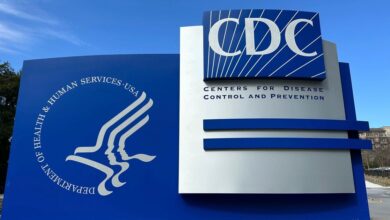Humana boosting wellness visits for Medicare Advantage profits

Humana’s Strategy for Boosting Medicare Advantage Profitability
A central theme in Humana’s plan for boosting Medicare Advantage profitability in the future is a strategy its peers have relied on for over a decade: coaxing members in for their annual wellness visits.
The Medicare Advantage business has faced scrutiny recently due to its impact on the federal budget, prompting discussions about limiting insurers’ tactics for maximizing government payments. Despite these challenges, Humana remains optimistic about the potential for profitability in the private form of Medicare for older adults, emphasizing the importance of time-tested strategies.
During the company’s investor day in Louisville, Ky., George Renaudin, the president of Humana’s insurance business, highlighted the significance of annual wellness visits for members. He emphasized that these visits, particularly at-home visits, are well-received by seniors who appreciate the convenience and personalized attention they receive.
While annual wellness visits were originally intended to allow doctors to assess patients’ health conditions comprehensively, insurers often use them to increase government payments by adding lucrative diagnosis codes. Humana is committed to increasing these visits through innovative partnerships with its primary care subsidiary and by embedding clinical insights into providers’ workflow systems. The company’s approach will involve comprehensive strategies, including prompting members to schedule visits during interactions with call center representatives.
UnitedHealth Group, another major Medicare Advantage insurer, has also prioritized engagement through annual wellness visits to add diagnostic codes, as highlighted in a recent earnings call. However, concerns have been raised about these visits leading to higher payments for insurers without resulting in additional care for members. A federal watchdog report found that insurers collected billions of dollars from diagnoses added during health risk assessments without evidence of corresponding treatment.
Jim Rechtin, Humana’s CEO, emphasized the company’s focus on becoming a senior services business, in addition to being a health insurer. With a large presence in the Medicare Advantage market and a senior primary care business under the CenterWell brand, Humana aims to improve its Medicare margin to a sustainable level. The company plans to prioritize accurate diagnoses, follow-up care, and improved clinical outcomes to lower expenses and drive profitability.
In conclusion, Humana’s strategy for boosting Medicare Advantage profitability involves leveraging annual wellness visits to engage members and improve care outcomes. By emphasizing retention and quality of service, the company aims to manage growth effectively and ensure long-term success in the Medicare Advantage market.




